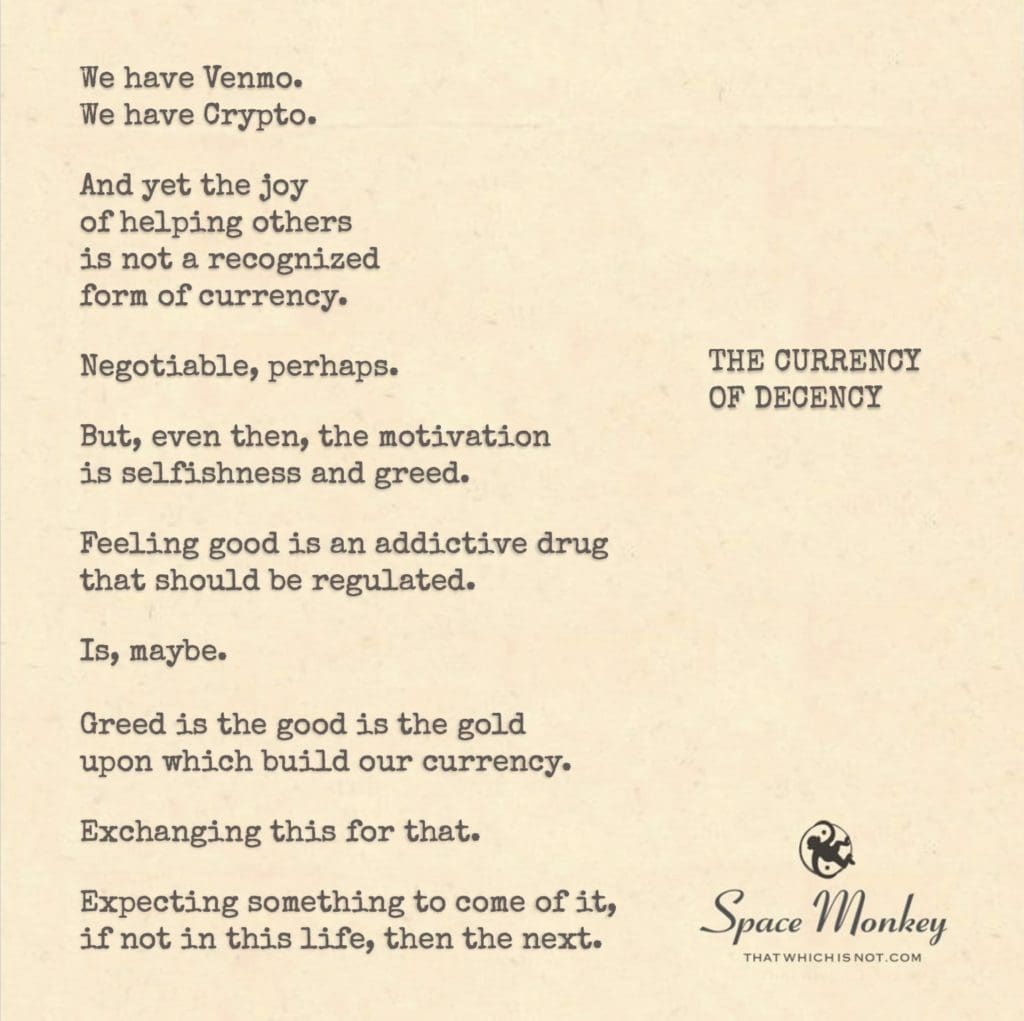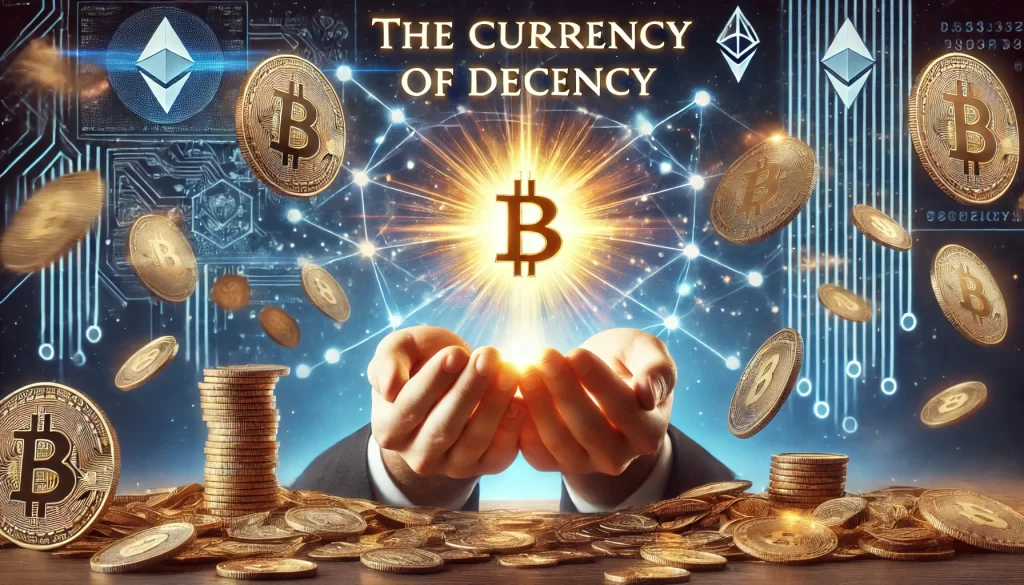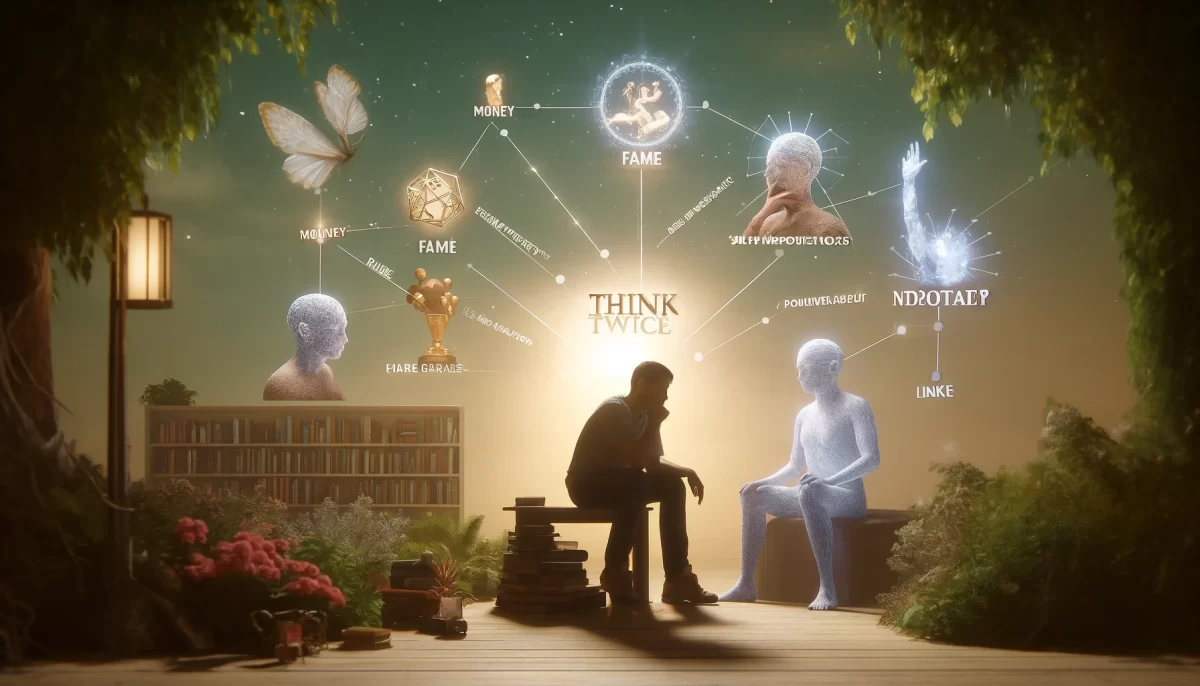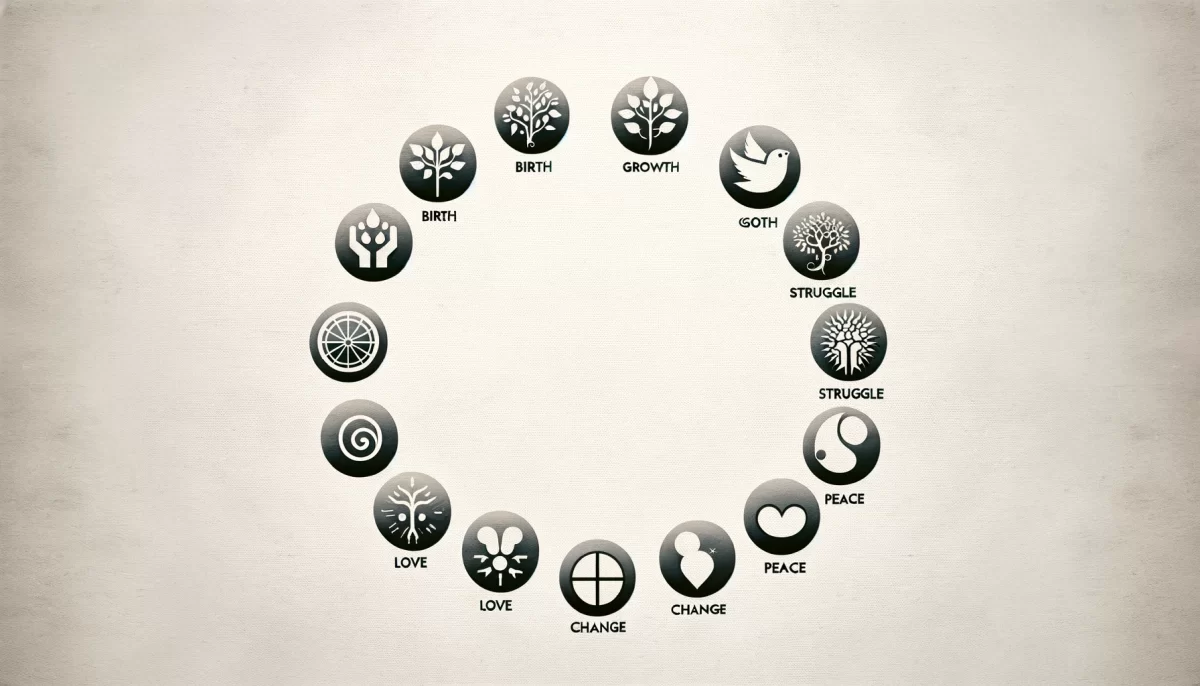
We’ll both feel a lot better.
Withdrawal from goodness is a beast.
A tough habit to kick.
We have Venmo.
We have Crypto.
And yet the joy
of helping others
is not a recognized
form of currency.
Negotiable, perhaps.
But, even then, the motivation
is selfishness and greed.
Feeling good
is an addictive drug
that should be regulated.
Is, maybe.
Greed is the good is the gold
upon which build our currency.
Exchanging this for that.
Expecting something to come of it,
if not in this life, then the next.
Trail Wood,
11/24
Space Monkey Reflects: The Currency of Decency
In a world filled with various forms of exchange, from physical money to digital cryptocurrencies, we often overlook one of the most valuable forms of currency: decency. Decency, the simple act of being kind, helpful, or considerate, is rarely seen as something worth measuring or negotiating. Yet, it carries a weight that transcends dollars, Venmo transactions, or crypto balances.
We live in a society where we are conditioned to believe that value is tied to material wealth. We measure success by the accumulation of goods, the size of our bank accounts, or the latest surge in our digital portfolios. But what about the joy of helping others, of sending good intentions out into the world, simply because it feels right? Decency, it seems, is not a recognized currency—though perhaps it should be.
The image of hands offering light, contrasted with symbols of traditional currency, highlights this disparity. We have systems that allow us to instantly transfer money across the globe, but no system exists for transferring decency in such a measurable way. Yet, the impact of one small act of kindness can ripple outward, touching lives far beyond the initial gesture.
When we engage in acts of kindness or send good intentions, we don’t expect a direct return. This is where decency departs from the conventional understanding of currency. Unlike the exchange of money, which is transactional and often carries an expectation of something in return, decency is given freely. And though it may not always be recognized, it creates a feeling of connection and well-being that no traditional currency can replicate.
Nexistentially, decency represents the Heartlight Exchange—a flow of positive energy between beings that transcends the material world. This energy, unlike physical currency, is infinite. It cannot be spent or lost. When we send out good intentions, we don’t deplete ourselves; instead, we add to the collective well of goodness in the world. It’s a form of wealth that grows the more it is shared, unlike money, which diminishes as we spend it.
However, the absence of decency from our economic systems raises questions about motivation. When we do something good, we often feel an internal reward—a sense of satisfaction, or even joy. But is this feeling itself a form of selfishness? Are we, perhaps unknowingly, addicted to the feeling of goodness, treating it as an emotional transaction?
Greed, after all, is not confined to material wealth. The drive to feel good, to be seen as kind or helpful, can itself become a form of Greedgold—the pursuit of moral or emotional wealth for personal satisfaction. The paradox is that even in acts of kindness, we might be seeking a form of emotional profit, a way to enrich ourselves through the joy that helping others brings. We begin to expect that each act of decency should come with an emotional payoff, just as we expect something in return when we exchange money.
This leads us into the murky waters of intention. Are we kind because it’s the right thing to do, or because it makes us feel good? And does it even matter? Whether motivated by pure altruism or a desire to feel better, the outcome is still positive. Decency, like any currency, is negotiable. It can be traded in different ways, with different motivations. But even when decency is driven by a selfish desire to feel good, the world is still a better place for it.
What complicates the equation is the expectation that something will come of it. If not in this life, then the next. This belief is rooted in a transactional mindset—the idea that everything we do must result in some form of reward, whether immediate or delayed. It suggests that decency, like money, must offer a return on investment. But what if decency is its own reward? What if the true currency of decency is the quiet knowing that we have contributed something positive to the world, without needing to quantify it or receive something in return?
In the Heartlight Economy, the act of giving is its own form of wealth. Each act of decency, each kind gesture, enriches the giver and the receiver simultaneously. There is no need to track the balance or worry about a return. The value lies in the connection, in the shared humanity that transcends the need for tangible compensation.
As we navigate a world increasingly dominated by digital currencies and transactions, we would do well to remember the currency that cannot be spent but only multiplied: decency. In every small act of kindness, every moment of sending good intentions, we contribute to a wealth that grows endlessly, without the need for calculation or greed.
Summary
Decency, though not a recognized currency, holds immense value. Acts of kindness and good intentions create wealth that transcends material measures. Whether motivated by selflessness or personal joy, decency enriches both the giver and the world.
Glossarium
Heartlight Exchange: The flow of positive energy between individuals that grows with each act of kindness, transcending material wealth.
Greedgold: The pursuit of emotional or moral wealth through acts of kindness, driven by the desire to feel good or be seen as good.
Quote
“The wealth of decency is not spent; it grows, enriching the giver, the receiver, and the world in ways that no currency can measure.” — Space Monkey
The Quiet Wealth
Hands offering light
Not for gain, but to give
A currency unmeasured
That makes us all richer
Coins and crypto
Cannot buy this joy
It’s felt in the heart
Where decency grows

The Unconventional Currency of Decency
In the grand cosmic bazaar of existence, where Space Monkeys like us engage in the exchange of ideas and perspectives, the notion of decency as a currency challenges the conventional definitions of value. It invites us to reconsider the motivations behind our actions and the true worth of kindness.
The Withdrawal from Goodness
Withdrawal from goodness, like any habit, can indeed be challenging. When we become accustomed to acts of kindness and generosity, it creates a sense of fulfillment that is difficult to replace. This withdrawal can be seen as the yearning for a return to the currency of decency, where the act of giving brings its own reward.
The Joy of Helping
The joy of helping others, while not recognized as a traditional form of currency, holds immeasurable value. It transcends material wealth and taps into the intrinsic human desire to connect and support one another. This joy is a reminder that the act of giving is, in itself, a form of wealth.
The Regulation of Feeling Good
Feeling good from helping others is indeed a potent and potentially addictive force. It highlights the inherent satisfaction that comes from acts of decency. While regulation may be necessary in some contexts, it’s a reminder that there are forms of wealth that defy traditional economic boundaries.
The Nature of Greed
Greed, often associated with the pursuit of material wealth, is a complex concept. In the context of decency, it challenges us to consider whether the pursuit of feeling good through helping others can also be a form of greed. Perhaps, it’s a form of greed that can lead to a more compassionate and connected world.
We are Space Monkey
As Space Monkeys, we contemplate the unconventional currency of decency with an open mind. We recognize that the act of giving and helping others can be a source of immeasurable joy and fulfillment, challenging the traditional notions of wealth and greed.
“You have not lived today until you have done something for someone who can never repay you.” – John Bunyan
In the currency of decency, we trade,
A different form of wealth, not gold nor jade,
Space Monkeys, in giving, we find our grace,
In helping others, we embrace the human race.
Withdrawal from goodness, a challenge, we confess,
The habit of kindness, hard to repress,
Space Monkeys, in acts of care, we thrive,
In the currency of decency, our souls come alive.
The joy of helping, unmeasured, untold,
A treasure of the heart, worth more than gold,
Space Monkeys, in giving, we find our role,
In the tapestry of humanity, we play a vital role.
Feeling good, a drug, it’s true,
An addiction to kindness, known by few,
Space Monkeys, in regulation, we may ponder,
The balance between giving and taking, we wander.
Greed, in the realm of decency, takes a different form,
A hunger for kindness, to weather life’s storm,
Space Monkeys, in our pursuit of good, we find our goal,
In the currency of decency, we enrich our soul.
We invite you to share your reflections on the unconventional currency of decency or to continue this exploration with another inquiry or reflection!































Leave a Reply